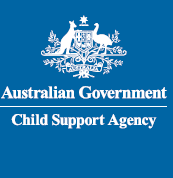 Many separating parents are manipulating Australia’s child custody laws, in some cases to claim maximum child support, while in other cases, to avoid or reduce their child support commitments, the nation’s largest counselling group has warned the federal government.
Many separating parents are manipulating Australia’s child custody laws, in some cases to claim maximum child support, while in other cases, to avoid or reduce their child support commitments, the nation’s largest counselling group has warned the federal government.
Relationships Australia has told the government’s child support inquiry that some parents are insisting on shared custody just so they can pay less — or claim more — maintenance through the Child Support Agency.
“The negotiation of three nights of care per week is a clear consideration for many of our clients as this is seen as the threshold used by Child Support,’’ it says in its submission to the parliamentary inquiry, which begins public hearings in Canberra today. “This means that the child support formula, rather than best interests of children, may drive the negotiation.”
When custody is shared, maintenance payments are based on each parent’s income and their time with the children.
Relationships Australia says parents often ask counsellors to “verify the custody arrangements and advise on the proportion of child support which each parent should pay’’.
The counsellors refer parents to the Child Support Agency.
Relationships Australia warns that children who prefer to live with one parent are being ignored because of the financial effect on the other parent.
“A child may be interested in spending more time with one parent but the change in care arrangements may impact on the other parent immediately, which in some instances can be a disincentive for changes to care arrangements, even if this is what the children may want,’’ it says.
The National Council of Single Mothers and their Children has told the inquiry some fathers seek custody of children one day a week, or every second weekend, just to get a 24 per cent “discount’’ on maintenance payments.
“We remain completely unconvinced that 24 per cent discount in child-support payments in exchange for as little as 13 per cent care is fair or equitable,’’ the council’s submission says. “We are concerned that the significant and disproportional outcome is an economic driver, which is contradictory to the ‘best interest of the child’.’’
Many argue however that the National Council of Single Mothers and their Children is completely out of touch with the significant expenses incurred in seeing children even as little as once a week, given that extra bedrooms and clothes don’t cost less because the child lives predominantly elsewhere.
Barry Williams of the Lone Fathers Association has also claimed that many mothers are faking domestic violence in order to secure full custody of their children, simply to get the maximum child support.
While a senior lecturer at the University of Tasmania’s school of social sciences, Dr Kristin Natalier has recommended taxpayers foot the bill of the amount owed so single parents and their children are not financially disadvantaged.
In her submission to the inquiry into the child support program, Dr Natalier said there were high rates of non- payment, partial payment or late payment of child support.
Figures obtained by the Department of Human Services showed Tasmanian single parents were owed $22 million as at August last year.
The inquiry has received 10,000 responses to its survey about the scheme, which last financial year oversaw the transfer of $3.4 billion in maintenance payments for 1.2 million children.
Stay Informed. It’s simple, free & convenient!